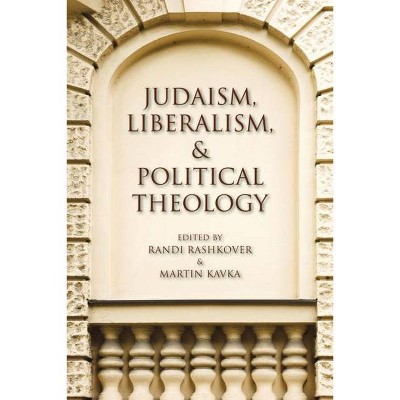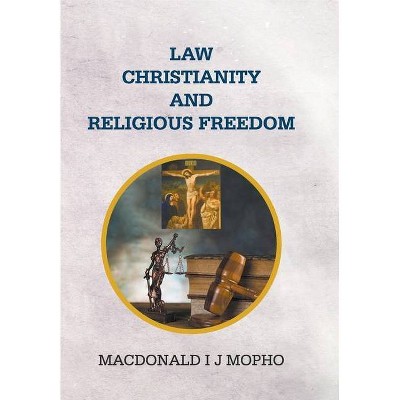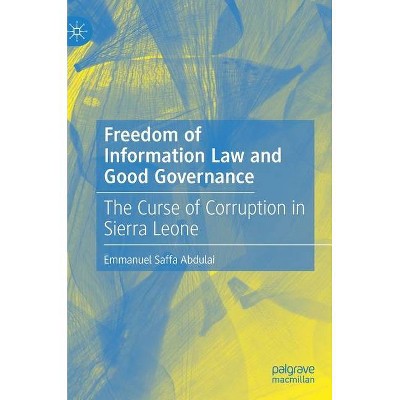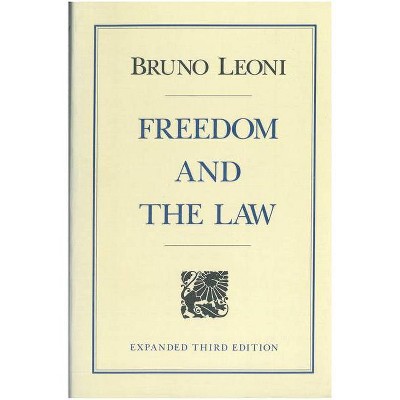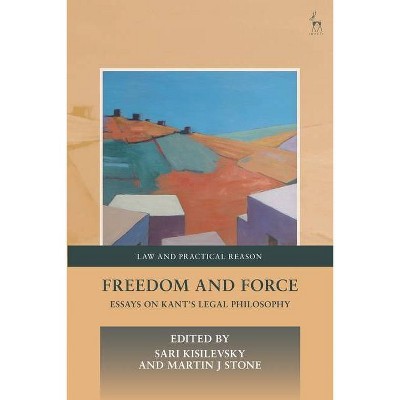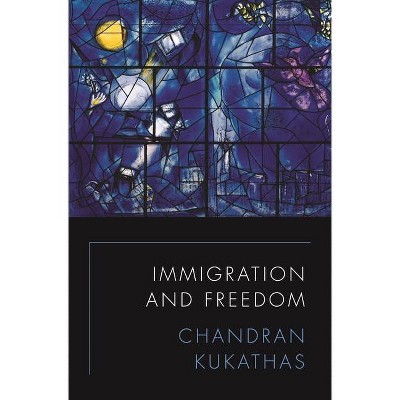Freedom and Law - by Randi Rashkover (Hardcover)
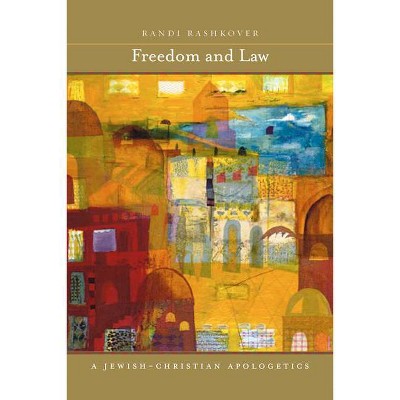
Similar Products
Products of same category from the store
AllProduct info
<p/><br></br><p><b> About the Book </b></p></br></br>Freedom and Law offers a provocative new view of the relationship between human desire, the production of knowledge, and conceptions of power by developing a nonpolemical account of divine law. Where recent trends in political theology have insisted upon the antagonistic nature of the law, this book presents the paradigm-altering power of a discourse in the nexus between law and freedom. It demonstrates how this nexus catapults religious thought into a free and powerful engagement with nonreligious political, ethical, and social positions.Freedom and Law challenges a contemporary wave of scholarship, including the work of Jacob Taubes, Giorgio Agamben, and Slavoj Zizek, that identifies Jewish law as the originary soucre of polemic between nations and therefore as historically responsible for the exceptionalism that undergirds contemporary conflict. By contrast, Freedom and Law argues that only in an account of revelatory law can divine freedom and human freedom be thought of without contradiction.The first part analyzes the logic of exceptionalism. In the second part, the author argues that one cannot invoke a doctrine of election without rigorous scrutiny of texts that portray an electing God and an elected people. Once we scrutinize these texts, the character of freedom and law within the divine-human relationship shows itself to be different from that found in exceptionalist logics.The third and final part examines the impact of the logic of the law on Jewish-Christian apologetics. Rather than require that one defend one's position to a nonbeliever, this logic situates all epistemological justification within the order or freedom of God. If the condition of the possibility of my claim is the reality of divine freedom, such freedom also justifies the possibility of another's claim.In a significant contribution to the post-ecclesiastical reengagement between religion, critical theory, and the political, Freedom and Law introduces new categories of knowledge and action into Jewish and Christian thinking, unbound by the dialectics of desire that has dominated the discourse of both traditions for centuries. It shows how thinking of law and freedom together may now enable Judaism and Christianity to engage in a historically self-conscious and nonrelativistic relation to each other and to nonbelievers.<p/><br></br><p><b> Book Synopsis </b></p></br></br><p><i>Freedom and Law</i> offers a provocative new view of the relationship between human desire, the production of knowledge, and conceptions of power by developing a nonpolemical account of divine law. Where recent trends in political theology have insisted upon the antagonistic nature of the law, this book presents the paradigm-altering power of a discourse in the nexus between law and freedom. It demonstrates how this nexus catapults religious thought into a free and powerful engagement with nonreligious political, ethical, and social positions. <p/><i>Freedom and Law </i>challenges a contemporary wave of scholarship, including the work of Jacob Taubes, Giorgio Agamben, and Slavoj Zizek, that identifies Jewish law as the originary soucre of polemic between nations and therefore as historically responsible for the exceptionalism that undergirds contemporary conflict. By contrast, Freedom and Law argues that only in an account of revelatory law can divine freedom and human freedom be thought of without contradiction. <p/>The first part analyzes the logic of exceptionalism. In the second part, the author argues that one cannot invoke a doctrine of election without rigorous scrutiny of texts that portray an electing God and an elected people. Once we scrutinize these texts, the character of freedom and law within the divine-human relationship shows itself to be different from that found in exceptionalist logics. <p/>The third and final part examines the impact of the logic of the law on Jewish-Christian apologetics. Rather than require that one defend one's position to a nonbeliever, this logic situates all epistemological justification within the order or freedom of God. If the condition of the possibility of my claim is the reality of divine freedom, such freedom also justifies the possibility of another's claim. <p/>In a significant contribution to the post-ecclesiastical reengagement between religion, critical theory, and the political, <i>Freedom and Law </i>introduces new categories of knowledge and action into Jewish and Christian thinking, unbound by the dialectics of desire that has dominated the discourse of both traditions for centuries. It shows how thinking of law and freedom together may now enable Judaism and Christianity to engage in a historically self-conscious and nonrelativistic relation to each other and to nonbelievers.</p><p/><br></br><p><b> Review Quotes </b></p></br></br><br>"A welcomed contribution to an already established discourse of Jewish-Christian understanding of the relationship between God and Humanity. A must-have volume."<b>-----Creston Davis, <i>Rollins College</i></b><br><br>"By contrast, Rashkover's criticisms of Agamben and others who surreptitiously undermine Jewish law and revelation are quite welcome. Although her own writing is more than a bit tinged by the rhetoric of her postmodern opponents--a problem at times--her sturdy defense of the law in light of contemporary scholarship offers the reader a wealth of ideas to consider. Compelling and frustrating by turns, Freedom and Law may indeed have the power to energize Jewish-Christian apologetics by showing not only the impediments to their mutual discourse, but also the paths to their mutual understanding."-- "--H-Judaic"<br><br>Freedom and Law offers a prophetic and timely intervention in interreligious dialogue, combining a compelling analysis of law and sovereignty with extensive forays into critical theory and political philosophy as well. Rashkover's insightful and generous yet provocative reading will prove to be a noteworthy touchstone in this field for years to come.<b>-----Willie Young, <i>Endicott College</i></b><br><p/><br></br><p><b> About the Author </b></p></br></br><br><strong>Randi Rashkover</strong> is Associate Professor of Religious Studies at George Mason University.She is the author of Revelation and Theopolitics: Barth, Rosenzweig and the Politics of Praise and co-editor of Liturgy, Time and the Politics of Redemption.<br>
Price History
Price Archive shows prices from various stores, lets you see history and find the cheapest. There is no actual sale on the website. For all support, inquiry and suggestion messagescommunication@pricearchive.us
